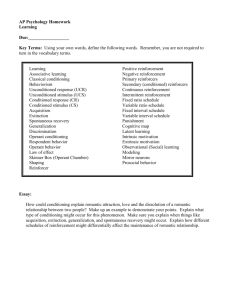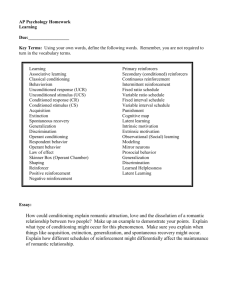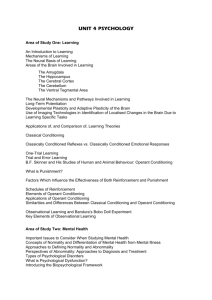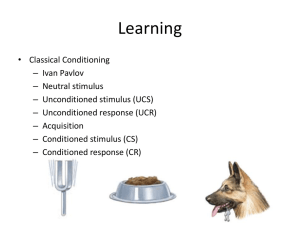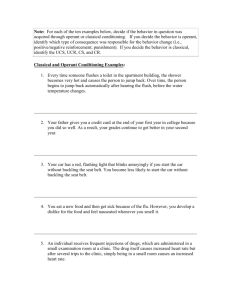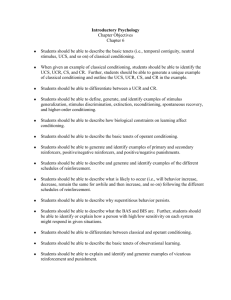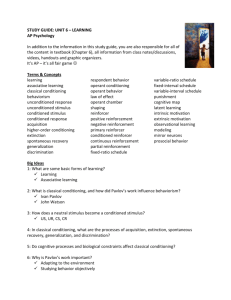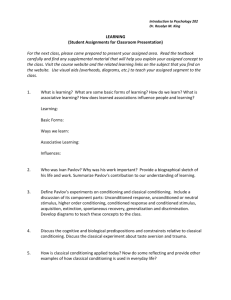AP Psychology - East Lyme Public Schools
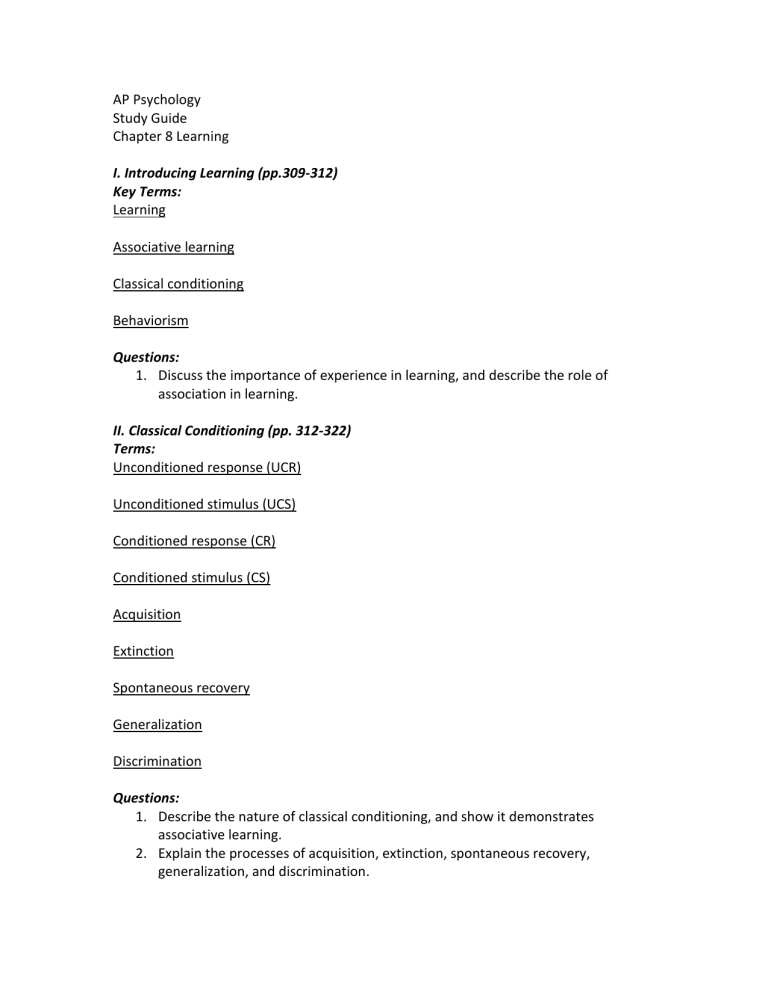
AP Psychology
Study Guide
Chapter 8 Learning
I. Introducing Learning (pp.309-312)
Key Terms:
Learning
Associative learning
Classical conditioning
Behaviorism
Questions:
1.
Discuss the importance of experience in learning, and describe the role of association in learning.
II. Classical Conditioning (pp. 312-322)
Terms:
Unconditioned response (UCR)
Unconditioned stimulus (UCS)
Conditioned response (CR)
Conditioned stimulus (CS)
Acquisition
Extinction
Spontaneous recovery
Generalization
Discrimination
Questions:
1.
Describe the nature of classical conditioning, and show it demonstrates associative learning.
2.
Explain the processes of acquisition, extinction, spontaneous recovery, generalization, and discrimination.
3.
Discuss the importance of cognitive processes and biological constraints in classical conditioning.
4.
Discuss the importance of Pavlov’s work in classical conditioning and explain how
Pavlov paved the way for the behaviorist position.
III. Operant Conditioning (pp. 322-335)
Terms:
Operant conditioning
Respondent behavior
Operant behavior
Law of effect
Operant chamber (Skinner box)
Shaping
Reinforcer
Primary reinforcers
Conditioned reinforcers
Continuous reinforcement
Partial (intermittent) reinforcement
Fixed-ratio schedule
Variable-ratio schedule
Fixed-interval schedule
Variable-interval schedule
Punishment
Cognitive map
Latent learning
Overjustification effect
Intrinsic motivation
Extrinsic motivation
Questions:
1.
Describe the process of operant conditioning, including the procedure of shaping.
2.
Identify the different types of reinforcers, and describe the four major schedules of partial reinforcement.
3.
Discuss the effects of punishment on behavior.
4.
Discuss evidence of the importance of cognitive and biological processes in operant conditioning.
5.
Describe some major applications of operant conditioning.
IV. Learning by Observation (pp.336-340)
Terms:
Observational learning
Modeling
Mirror neurons
Prosocial behavior
Questions
1.
Describe the process of observational learning.
2.
Discuss the impact of viewing televised aggression on children.


